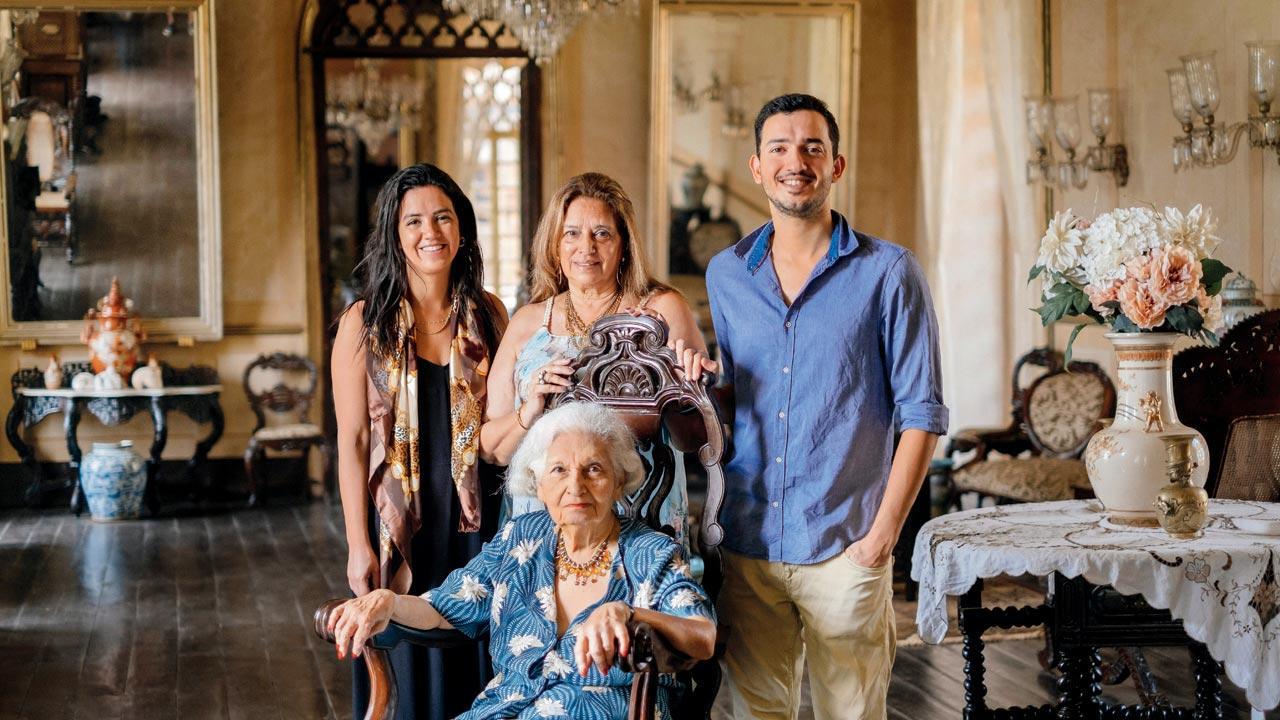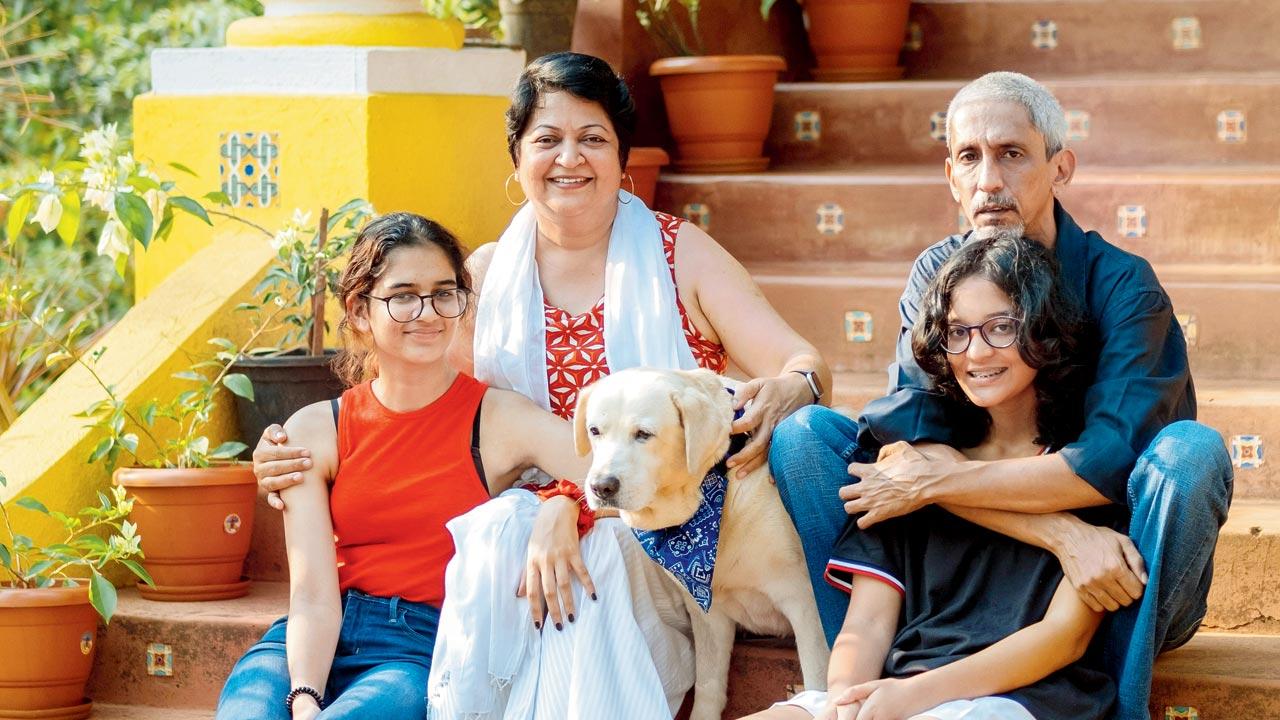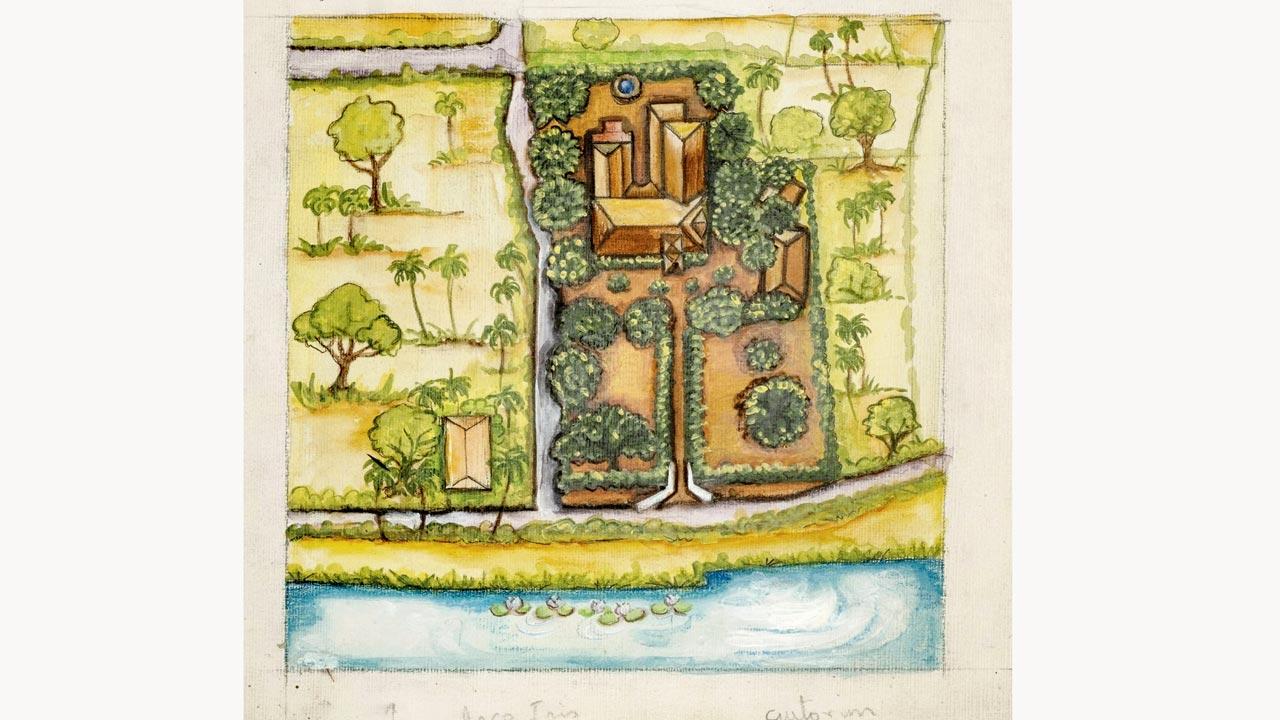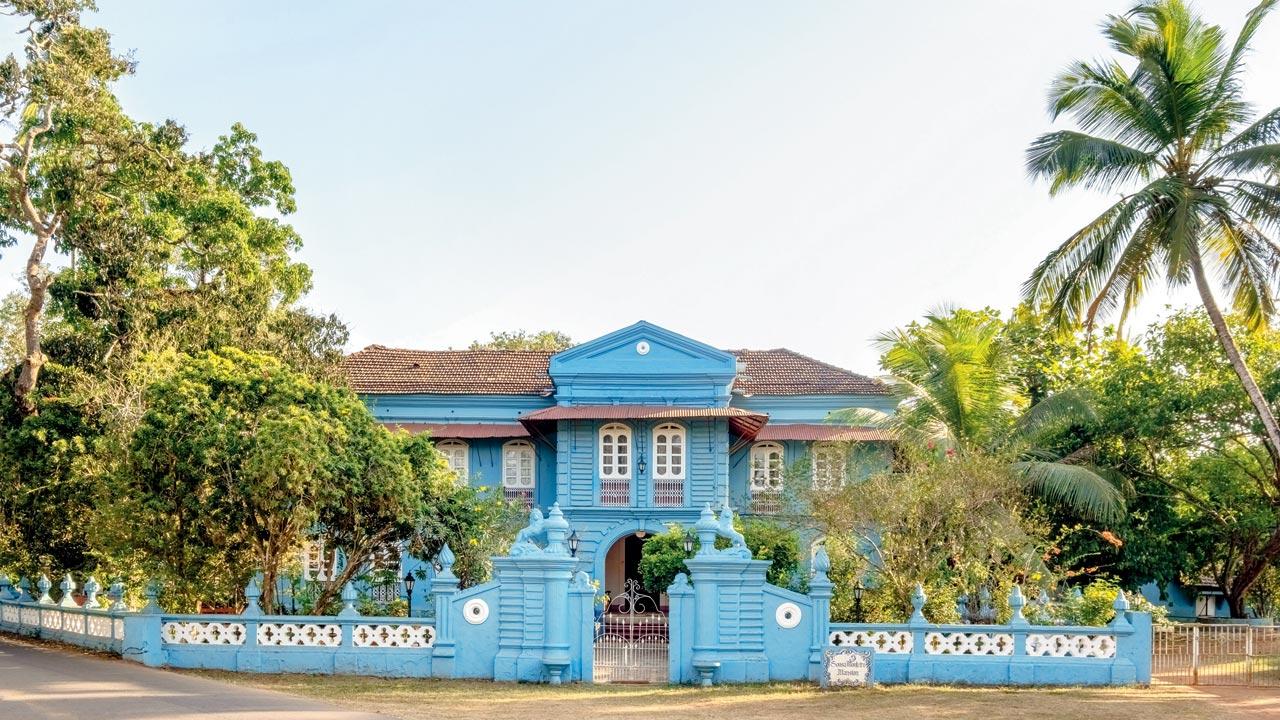Heritage activist and Saligao resident Heta Pandit’s new book explores the ancestors and legends that take up space in old Goan houses through their owners

Katarina, Fatima and Pedro Figueiredo Novais with Lourdes Figueiredo at the Mansion. Pics Courtesy/Stories From Goan Houses by Heta Pandit
There's a centuries-old legend from Sanvordekar Wada in Sanvordem that lives and breathes in the stories shared by its occupiers. Goa-based heritage activist Heta Pandit, who has had the rare opportunity of visiting the wada, tells us that it’s a unique structure, with five inter-connected homes around a main courtyard, and another for women called the bailancho aangan. “The village was named after the family, not the other way round. They were wealthy with huge plantations,” she says. “Legend is that dacoits once arrived on horseback, fully-armed at the front door of the wada. But suddenly they stopped, because they saw a lady, sitting on the second step. It was late into the night, and normally a woman wouldn’t be seated there at that hour. She was dressed beautifully in a nine-yard saree, decked in gold, her hair left open, and a big red bindi on her forehead. They knew right then that it was Goddess Shree Shantadurga, and so they quietly left,” says Pandit. Ever since, nobody has set foot on that second step.
ADVERTISEMENT
 Trikaya, Bennita, Feni, Ganesh and Trusha on the front steps of the restored Neemrana Arco Iris, Curtorim
Trikaya, Bennita, Feni, Ganesh and Trusha on the front steps of the restored Neemrana Arco Iris, Curtorim
For the last many years, Pandit has been on a unique quest, visiting homes that draw their heritage from the ancestors who lived there, their myths and the unique architecture that make them quintessentially Goan. Her soon-to-release book, Stories From Goan Houses, which comes nearly 24 years after Houses of Goa (published by Gerard Da Cunha and co-written by Annabel Mascarenhas Lopes) that focussed more on the architecture, explores why these structures also have a beating heart.
 Artist Bianca Menezes gives readers a bird’s eye view of every house in the book
Artist Bianca Menezes gives readers a bird’s eye view of every house in the book
Pandit, who co-founded the Goa Heritage Action Group in the year 2000 with architects Raya Shankhwalker and Poonam Verma Mascarenhas, and has written numerous books that map the coastal state’s vibrant and rich cultural history, says “there is more awareness about Goan architecture now. We don’t have to begin at the beginning anymore.” She felt instead, that she needed to turn to its inhabitants. “I followed a completely new approach to interact with the house-owners. In fact, the book has been written by them. I have only done the introduction and ending, and of course, guided them, so that the stories [I was seeking] emerged. It’s a talking book, where the custodians are the authors.”
 This house, like many houses in Goa, has been built over several decades. The Souza Monteiro House completes 100 years this year
This house, like many houses in Goa, has been built over several decades. The Souza Monteiro House completes 100 years this year
The book features 21 homes, with photographs by Daniel D’Souza. Nisha Albuquerque has designed the title, juxtaposing photographs, which Pandit says, speak to each other. Artist-sculptor Bianca Menezes has given every home featured, a drawing, offering a birds-eye view of the houses. “You can see the house from the top, the roofline, and the greenery that surrounds the houses. You will also notice that almost every home has a water body, either a lake or river.” Pandit has only included two houses from her first book: Costa Frias in Candolim and Figueiredo House in Loutolim, in this title. “That’s for a reason. These houses have come a long way since the first feature. Both the families [who own these homes] have struggled hard over the last 22 years... they have also taken bank loans, to restore these to near perfection,” she shares.
 Heta Pandit
Heta Pandit
What shines are the legends, and there are innumerable. “Mostly, what preoccupies the residents the most is their ancestors, and how the house emerged,” she says, citing the example of Kundaikar House in village Kundai. “They believe that the first person who started the family here was a lady who was widowed and had a two-year-old son. She hailed from South Goa, and had been abandoned by both, her marital and maternal families. She came looking for shelter, and was taken in by the Kamats, becoming the sambhalnaari, the lady who looks after the house.” The story goes that there was a huge flood in the area, and the residents, who saw no respite from the monsoon, thought they’d have to sacrifice a child. “The lady overheard the conversation, and fearing that her son would be taken, prayed to Goddess Shree Shantadurga. Legend is that the goddess told her to place her son under the sluice gate boulders. She kept the child there, despite the risk of losing him to the flood. The water did recede and the child was unharmed. The villagers believe that she had been touched by divinity and gave her a plot of land to start her life there. That’s why today in Kundai they say, ‘You make a vow and you get a gao’,” says Pandit, smiling.
Her first book since its release has become a manual of sorts, for architectural students and firms, alike, especially those engaged in conservation and restoration. “I hope this one also becomes a reference material for those studying the cultural and social history of Goa, because they will see the changes that are taking place in a home, not just materially. The house is an organic and dynamic space... speaking to you, based on how you respond to it. I hope it inspires younger people to not leave Goa, and find a way to put their old home back on its feet.”
To pre-order: hetapandit.com
 Subscribe today by clicking the link and stay updated with the latest news!" Click here!
Subscribe today by clicking the link and stay updated with the latest news!" Click here!







